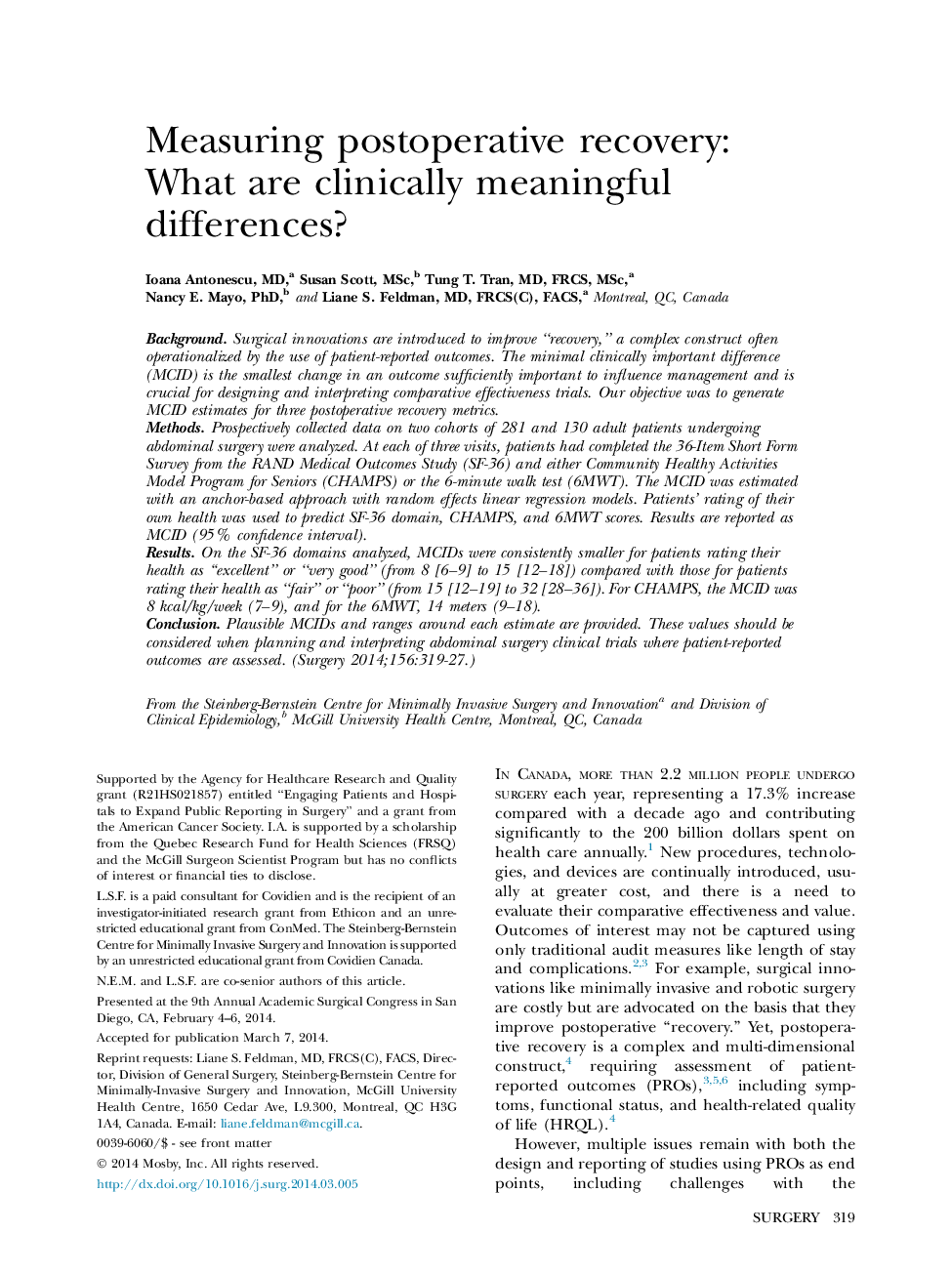| Article ID | Journal | Published Year | Pages | File Type |
|---|---|---|---|---|
| 6255666 | Surgery | 2014 | 9 Pages |
BackgroundSurgical innovations are introduced to improve “recovery,” a complex construct often operationalized by the use of patient-reported outcomes. The minimal clinically important difference (MCID) is the smallest change in an outcome sufficiently important to influence management and is crucial for designing and interpreting comparative effectiveness trials. Our objective was to generate MCID estimates for three postoperative recovery metrics.MethodsProspectively collected data on two cohorts of 281 and 130 adult patients undergoing abdominal surgery were analyzed. At each of three visits, patients had completed the 36-Item Short Form Survey from the RAND Medical Outcomes Study (SF-36) and either Community Healthy Activities Model Program for Seniors (CHAMPS) or the 6-minute walk test (6MWT). The MCID was estimated with an anchor-based approach with random effects linear regression models. Patients' rating of their own health was used to predict SF-36 domain, CHAMPS, and 6MWT scores. Results are reported as MCID (95% confidence interval).ResultsOn the SF-36 domains analyzed, MCIDs were consistently smaller for patients rating their health as “excellent” or “very good” (from 8 [6-9] to 15 [12-18]) compared with those for patients rating their health as “fair” or “poor” (from 15 [12-19] to 32 [28-36]). For CHAMPS, the MCID was 8Â kcal/kg/week (7-9), and for the 6MWT, 14Â meters (9-18).ConclusionPlausible MCIDs and ranges around each estimate are provided. These values should be considered when planning and interpreting abdominal surgery clinical trials where patient-reported outcomes are assessed.
